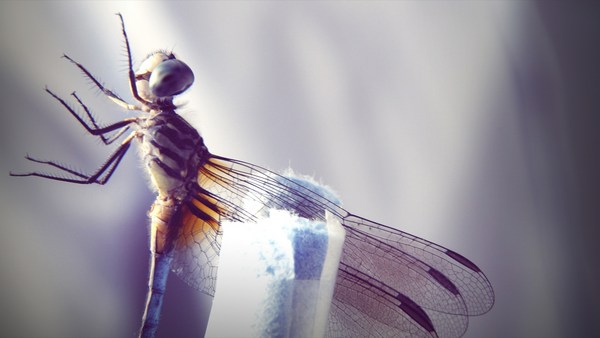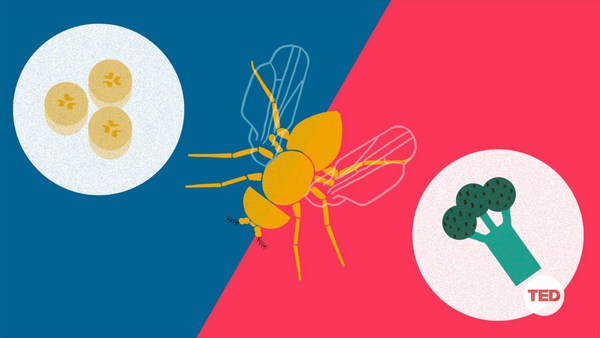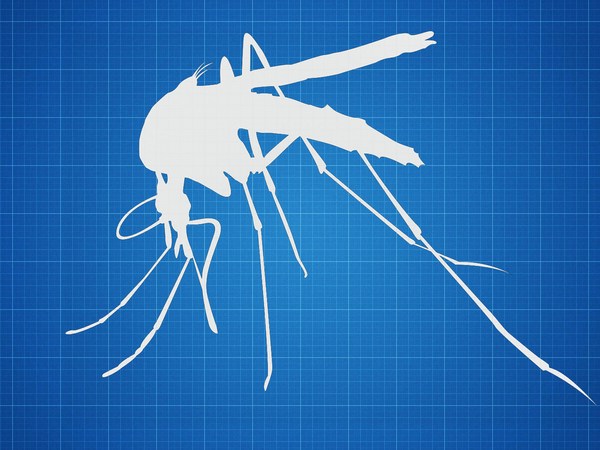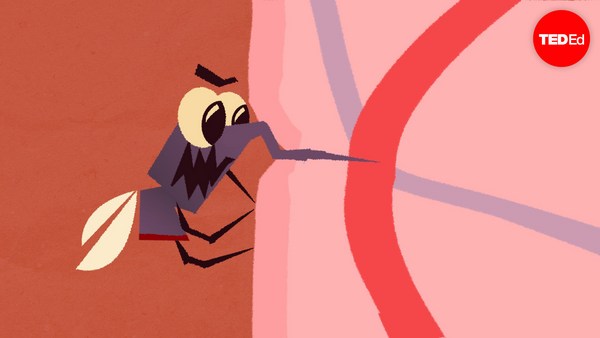(Mosquito buzzing) Greg Gage: We've all heard the annoying sound of a mosquito, and we will stop at nothing to make it go away. While this sound may be maddening to us, perhaps it's music to a mosquito's ears. The mosquito's nervous system has almost as many sensory auditory cells as we do. But why would they have so many in such a small body, and why would they need to be so sensitive to sounds? The answer is love.
[DIY Neuroscience]
(Music)
As humans, we do a lot to attract each other. Some things are conscious -- we put on makeup and make sure we smell nice. And some are unconscious. You may unconsciously point your body or even sit closer to someone you like. These are courtship behaviors, and a lot of animals have them.
And mosquitoes are no different. So Haley's been spending her summer bravely listening to mosquitoes, and what she observed may surprise you.
So we want to investigate how the mosquitoes make their song. So Haley, how do we record their wing beats?
Haley Smith: We need to tether them. First, we anesthetize them in a fridge or a bed of ice. And then I transfer them to this petri dish of ice, just to get them even more anesthetized. Next, I take an insect pin, and what I do is put a tiny little dab of superglue on this pin. I want to make sure that I get it on his thorax above his wings so that when he is suspended, his wings are still free to move. So here's one down. It's really hard to catch male mosquitoes in the wild because females are the only mosquitoes that are attracted to humans. They feed on human blood. And now, we can try to get some recordings from them. So this is the stand that I use to hold them. I like to place it right over the microphone so that I can get a recording of the buzzing that you hear. That sound is generated by how fast they're beating their wings. This is a male. The males have very bushy antennae, and they look kind of feathery. And they are also much smaller.
GG: So he's flying at around 600 hertz. Can we try a female mosquito?
HS: Sure, here we go.
(Mosquito buzzing, lower pitch)
GG: Wow.
HS: This is a much lower frequency than the male.
GG: Yeah, it sounds completely different.
(Mosquito buzzing)
(Mosquito buzzing, lower pitch)
So is it because they're two different mosquitoes, or because they're male and female?
HS: It's because they're male and female.
GG: Alright, let's verify that. Can you bring in another female and see if she sounds like mosquito A or mosquito B?
HS: Yeah.
(Mosquito buzzing, lower pitch)
And again, she is much lower than the male.
GG: Yeah, she sounds different.
(Mosquito buzzing, lower pitch)
Yeah, she's spot-on 400.
HS: She really is. GG: That's really bizarre.
HS: The females are at a much lower pitch. They were around 400 hertz.
HS: And all of the females were around that, too. They were much larger than the males, so they didn't have to flap their wings as fast to stay in free flight.
GG: So they have larger wings, so they're flapping slower. And you noticed that all the females have the same frequency, roughly? And the males do, too. That's kind of interesting. So that must mean something. Well, let's see what happens when we put the male and the female together.
(Mosquitoes buzzing; pitch varies)
HS: When I put them into the same hearing range, I noticed that they were kind of changing their tones. It was kind of more dull, almost.
(Mosquitoes buzzing)
And when I put it back in my spectrogram to see their interaction, they were meeting at the same tone.
GG: OK, pause. The males and females are singing a duet, meaning that they adjust their wings to be able to produce a common tone. You have the male singing up here at G, and you have the female singing down here at D, and when they get together, you're saying that they change the frequency of their wings such that they come together?
HS: Yeah, exactly. GG: And they sort of sing a duet.
(Mosquitoes gradually adjusting to identical pitch)
HS: They're communicating to let each other know that they've basically found a potential mate.
GG: So in other words, the female tends to choose a male that best sings her duet. And studies have found that if she's pregnant, she doesn't even bother. So if we can understand the mosquito mating behavior, we may be able to disrupt it in the wild and prevent diseases like malaria. But for now, the next time you hear a mosquito buzzing, just pause and remember she may be in love and she may be singing her song, looking for her perfect match.
(Mosquito buzzing)
(Smack)





